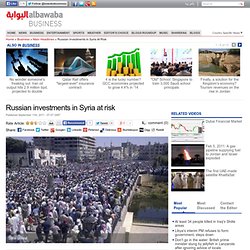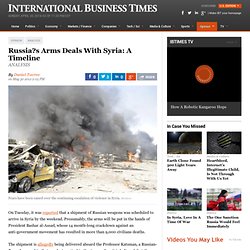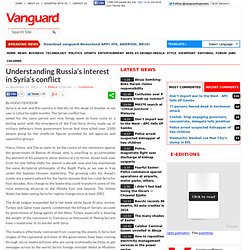

New Russian world order: the five principles. In the aftermath of the Georgian conflict, the Russian President Dmitry Medvedev has laid down five principles that he says will guide Russian foreign policy. The new Moscow rules are not a blueprint for a new "Cold War". That was a worldwide ideological and economic struggle. This is much more about defending national interests. Going back to the 19th Century? The principles, with their references to "privileged interests" and the protection of Russian citizens, would probably seem rather obvious to Russian leaders of the 19th Century. In some ways, we are going back to the century before last, with a nationalistic Russia very much looking out for its own interests, but open to co-operation with the outside world on issues where it is willing to be flexible. President Medvedev's principles do not, for example, necessarily exclude Russian agreement to continuing the strong diplomatic stance against Iran. 1. 2.
"The world should be multi-polar. 3. 4. 5. Russia's Sphere of Interests in Eurasia Undermines U.S. Foreign Policy. Russian investments in Syria at risk. Syria unrest More > , , , , , , , Create alert for MEG29MEG29 The number of victims in Syria continues to rise, but Syria is not the only nation suffering from the deteriorating security situation.

Russian companies with investments in Syria are incurring huge financial losses amounting to billions of dollars. The Moscow Times discussed the commercial and economic ties between Syria and Russia, specifically the profitable arms contracts and Russian investments in infrastructure, energy and tourism in Syria. The Moscow Times stated that the sum of Russian exports to Syria was 1.1 billion dollars in 2010, whereas Russian investments in the country amounted to 19.4 billion dollars in 2009. According to UN estimates more than 2,200 demonstrators have been killed in the growing protest movement against Assad’s regime since March. Middle East News, Iraq, Iran current affairs. Israel joins Russian ballet school By M K Bhadrakumar The mystery surrounding the death of the deputy head of Russia's military intelligence agency has somewhat eased. When 52-year-old Major-General Yuri Ivanov's body was washed up on an eastern Mediterranean beach in the Turkish province of Hatay in mid-August, bloggers had a field day.
Ivanov was on a sensitive mission to Syria to oversee the Russian military base in Tartus and was apparently heading for a meeting with the Syrian intelligence when he went missing. Israel is concerned about Tartus, a technologically advanced Russian listening post that could spy on its communications and military movements. However, any speculation that Israel was involved in Ivanov's death can now be laid to rest. Russia and Israel signed in Moscow on Monday would not have been possible. A strategic alliance ... Equally, when Russia and Israel, two countries untainted by idealism in their foreign policies bond, anything is possible.
Russia?s Arms Deals With Syria: A Timeline. The shipment is allegedly being delivered aboard the Professor Katsman, a Russian-flagged cargo ship that was last spotted in the Aegean Sea; it is believed that the boat will be stopping in Athens's Piraeus Road port before heading to Tartus, the Russian-own naval base in western Syria, according to MarineTraffic.

The Russian foreign ministry has been mum on the shipment, but the weapons are thought to have been supplied by Rosoboronexport, the official state arms dealer, with whom the Pentagon still has a contract. A history of Russia-Syria's military relationship: - Russia has been selling Syria weapons since the Soviet period, starting with the 1973 Arab-Israeli War. - However, Russia became Syria's main arms supplier after the fall of the Soviet Union, when Russia absolved Syria of $9.8 billion of its $13.4 billion debt in exchange for making Tartus a permanent Russian military base. Tartus is Russia's only naval presence in the Mediterranean. Sources: Understanding Russia’s interest in Syria’s conflict. By HUGO ODIOGOR Syria is at war and the country is literally on the verge of disaster as we saw in Libya for eight months.

The Syrian conflict has lasted for the same period and now things seem to have come to a boiling point with the emergence of the Free Syria Army, made up of military defectors from government forces that have killed over 3,500 people going by the unofficial figures provided by aid agencies and opposition groups. Hama, Homs and Deraa seem to be the centre of the resistance against the government of Bashar Al Assad, who is unwilling to accommodate the demand of his people to allow democracy to thrive. Assad took over from his late father Hafiz for almost a decade now and has maintained the same dictatorial philosophy of the Baath Party as we saw in Iraq under the Saddam Hussein leadership. The growing calls for Assad’s ouster are a severe setback for the family dynasty that has ruled Syria for four decades. Foreign missions under attack Global pressure Civil war.